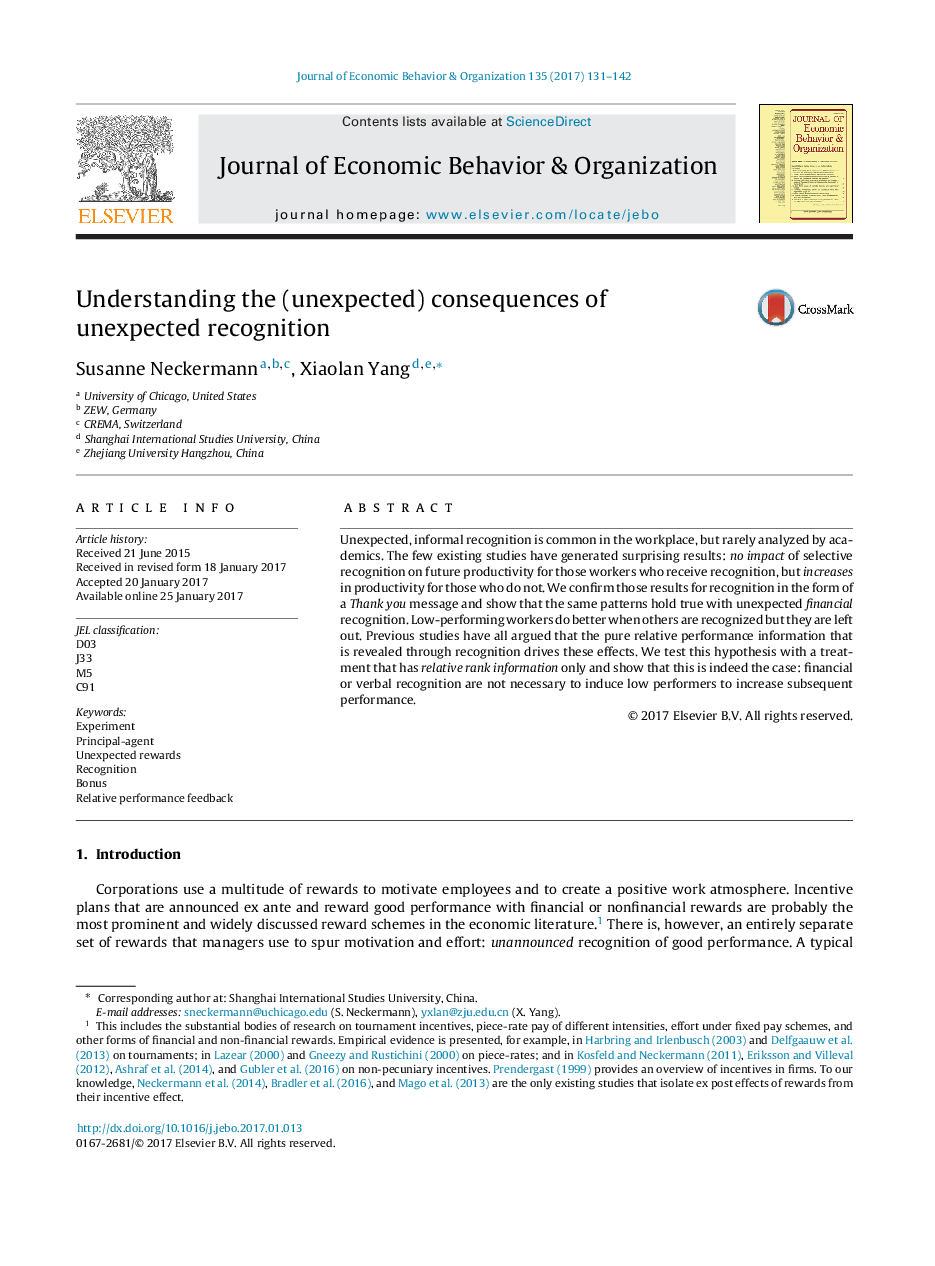| Article ID | Journal | Published Year | Pages | File Type |
|---|---|---|---|---|
| 5034588 | Journal of Economic Behavior & Organization | 2017 | 12 Pages |
â¢We conducted a principal-agent, real-effort, lab experiment on unexpected recognition.â¢Financial recognition, a thank you, and relative performance information all have the same effect.â¢It is the low performers and not the high performers that increase subsequent effort.â¢A disutility of being behind can explain the results.â¢We discuss implications of our findings for both theory and application.
Unexpected, informal recognition is common in the workplace, but rarely analyzed by academics. The few existing studies have generated surprising results: no impact of selective recognition on future productivity for those workers who receive recognition, but increases in productivity for those who do not. We confirm those results for recognition in the form of a Thank you message and show that the same patterns hold true with unexpected financial recognition. Low-performing workers do better when others are recognized but they are left out. Previous studies have all argued that the pure relative performance information that is revealed through recognition drives these effects. We test this hypothesis with a treatment that has relative rank information only and show that this is indeed the case: financial or verbal recognition are not necessary to induce low performers to increase subsequent performance.
